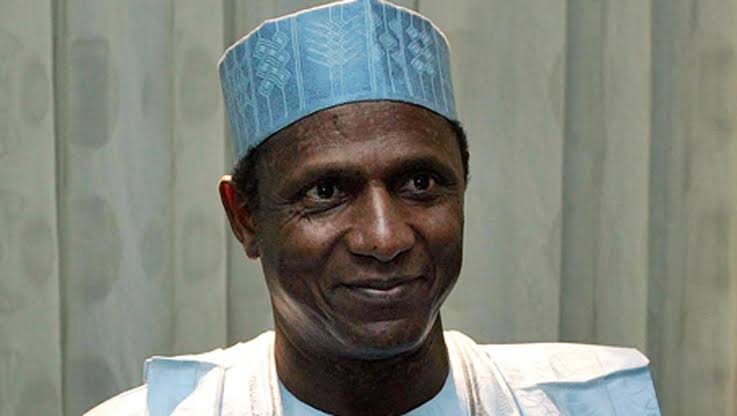Former President Goodluck Ebele Jonathan has made startling revelations about the constitutional crisis that gripped Nigeria during President Umaru Musa Yar’Adua’s illness in 2010, disclosing that a presidential aide deliberately prevented the proper transfer of power and describing the tense atmosphere that included daily coup rumors.
In a recent interview shared on X by TheCable, Jonathan provided unprecedented details about one of Nigeria’s most challenging political periods, revealing how religious and regional divisions nearly paralyzed the country’s leadership structure.
READ ALSO: Goodluck Jonathan to receive 2025 Sunhak peace award in South Korea
Jonathan disclosed that Yar’Adua had actually prepared the constitutionally required letter to transfer power before his medical trip, but it never reached the National Assembly due to interference by a presidential aide.
“When Yar’Adua was going for the medical checkup, actually a letter was written. Of course, the constitution says that for the vice president to act, the president would send a letter to the Senate and the House of Representatives informing them. That letter was written,” Jonathan revealed.

“But the person who the letter was handed over to, I will not mention the name to you now, was one of the aides of Yar’Adua, refused to submit the letter to the National Assembly. And Yar’Adua became so ill that he had no control of issues. So we had a country where the president was not available, and there was no acting president.”
“The former president explained how Nigeria’s complex religious and regional power-sharing arrangements complicated the situation, with northern Muslims expecting Yar’Adua to complete eight years in office.
“There’s always balancing between North and South, Muslims and Christians. And Yar’Adua was a Northern Muslim, was the president. And he took over from a Southern Christian, Obasanjo, who ruled for eight years,” Jonathan said.
“So definitely the Northern Muslims wanted Yar’Adua to at least do eight years before he could come back to the South for another, probably a Christian, to take over. But, well, the health issue came up, and it was the problem. And that is why even to allow me to act was an issue.”
Jonathan highlighted a critical constitutional gap that emerged during the crisis, explaining the difference between executive functions and military command responsibilities.
“Yes, as a vice president, you can take over the responsibilities of some responsibilities of the president. You know, the president of Nigeria has two main responsibilities. First, you are the chief executive of the country, so like a prime minister of a country. That the vice president can assume. You don’t need any transfer. And I was doing that because we were having an executive council meeting,” he explained.
However, he noted the crucial limitation: “But there was no commander-in-chief, which is the second responsibility of the president of Nigeria, besides being the executive head of the country. And there’s nothing like acting commander-in-chief. Either you’re a commander-in-chief or not.”
The former president described the intense security atmosphere during the crisis, revealing that he received daily warnings about potential military takeovers.
“So the country was tense. And under this North-South divide, Christian-Muslim divide, it was really tense. And every day I was hearing about coup, coup, coup,” Jonathan disclosed.
He recounted how concerned friends urged him to leave the State House for his safety, but he refused, saying: “I will stay in the state house. If anybody wants to kill me, it’s better you kill me in the state house so the Nigerians will know that they assassinated me in the state house. They know I have not committed any offence.”
Jonathan explained his reasoning: “If I decided to go and stay in their guest house, and whenever I’m going, security people would know. And if people go and kill me there, they will now say Indian girls brought apple to kill me. And I wouldn’t want that kind of story. But if the assassination is better that I die here in the state house than being assassinated outside the state house, because all kinds of stories will come up.
“The crisis was eventually resolved through what became known as the “Doctrine of Necessity,” when the National Assembly took extraordinary action to formalize Jonathan’s role as acting president.
“When the National Assembly felt that the country was in a situation where it was not expected, they now have to initiate this Doctrine of Necessity, and they now made me to act as a president without the letter from Yar’Adua,” Jonathan explained.
Despite the intense pressure and security concerns, Jonathan maintained he remained calm throughout the ordeal: “And to me, I was not bothered. Really, I was not bothered. And I was very calm. But that was the scenario.”

